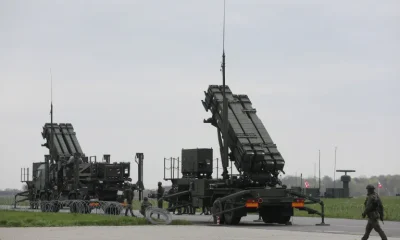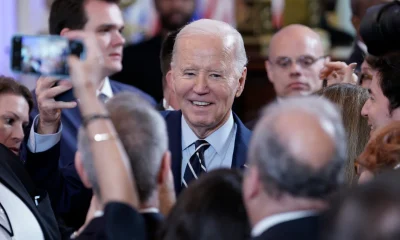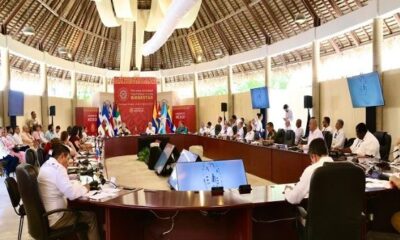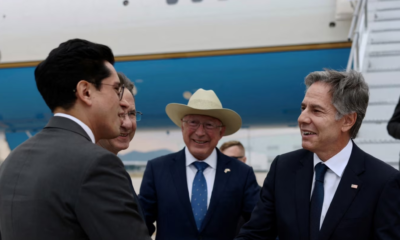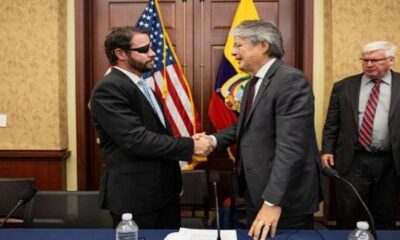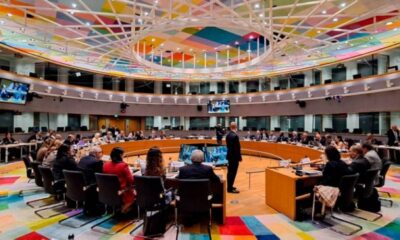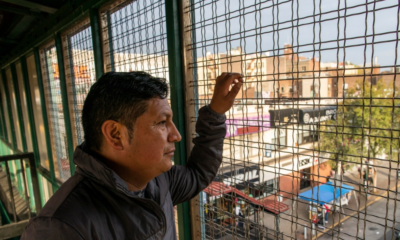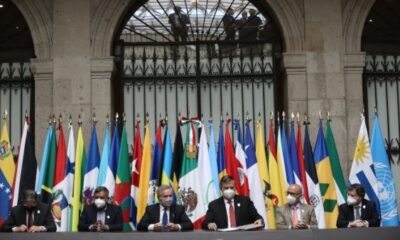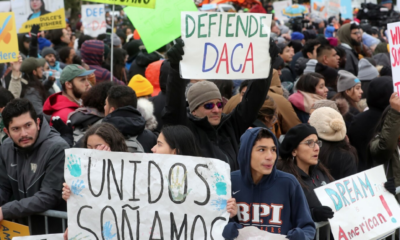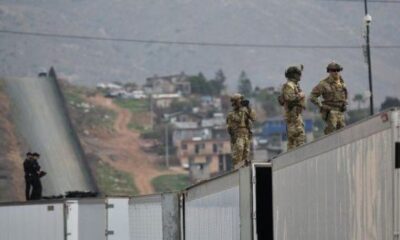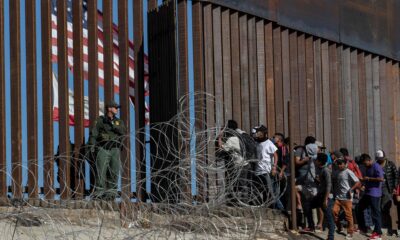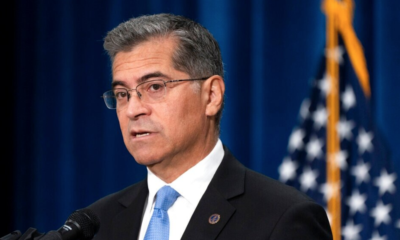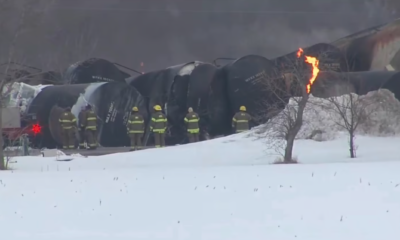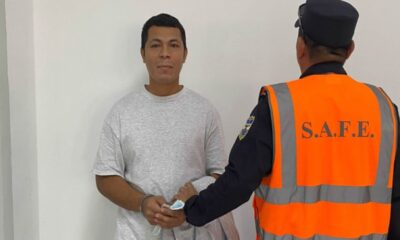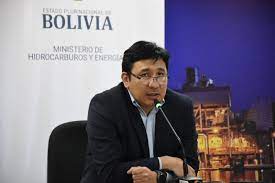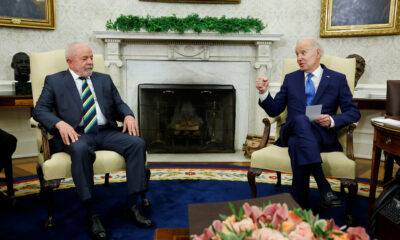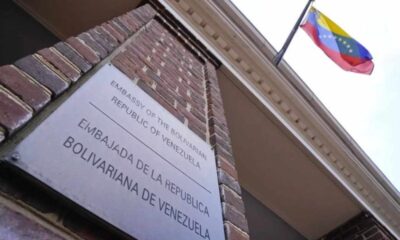International
US bets on new approach to anti-drug policies in Latin America
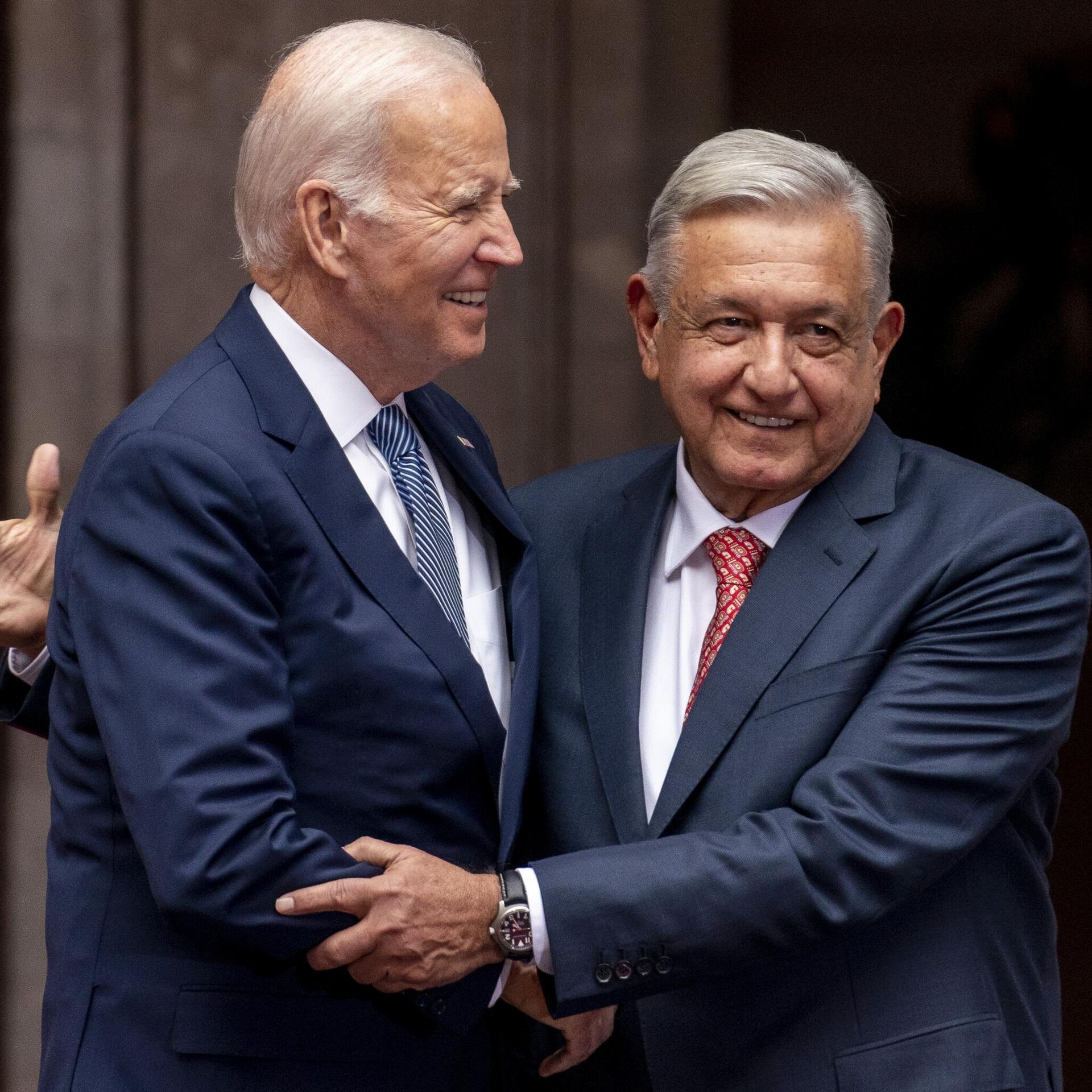
February 14th |
The Biden administration will redouble its domestic efforts and binational cooperation with Mexico to combat the fentanyl crisis in the United States, which has resulted in 70,000 overdose deaths annually.
In an interview with Voice of America, the director of the White House Office of Drug Control Policy, Rahul Gupta, indicated that the fentanyl crisis “does not begin or end at the border”, despite the fact that, according to official data, the vast majority of the synthetic opioid is produced by Mexican cartels and enters the country through the southern border.
The U.S. Drug Enforcement Administration (DEA) reported seizing enough fentanyl in 2022 to potentially have killed the entire U.S. population.
Gupta acknowledged that “there is no question” that “mistakes have been made in the past,” referring to U.S. anti-drug policy and its cooperation with countries in the Western Hemisphere. His statement is an alternate response to the position of Colombian President Gustavo Petro, who has called the anti-drug policy of several U.S. administrations “a failure”.
Question: What are the next steps this administration will take on the fentanyl crisis?
Answer: It is a priority for President Biden. When he went to Mexico to talk to President Lopez Obrador, as well as Prime Minister Trudeau, this was one of the most important things he also talked about. It’s important that we make sure that we have educational campaigns, especially so that children are aware and understand that they have the power not only to be aware of this deadly threat, but also to have Naloxone, the antidote, so that they can help their friends and others. In addition, making sure that we have the treatment available to everyone who needs it – we know that too many Americans today cannot get the treatment – then, along with the antidote, getting more people treated.
In this administration, President Biden highlighted how we have reached the highest levels of fentanyl seizures at the border, double that in 2020 and four times that in 2019. Why? Because we have implemented technology to be able to detect more. But the problem doesn’t start or end at the border. We have to work with Mexico. We have to work with them because we have a shared responsibility for the safety, security and health for the people of both countries.
What exactly is Mexico’s role in this strategy?
Mexico has a very important role as our neighbor to the south, as well as a long-time partner. Our relationship is often complex, but we know that people in Mexico are dying from overdoses and fentanyl intoxication just as they are in the United States. So, it’s very important that we work with a shared sense of responsibility, make sure that we are working to protect our country, that we are going after the bad actors who are intent on harming Americans and Mexicans.
At the same time, we are working to improve public health treatment and the antidote Naloxone, or Narcan, and make it available to anyone who needs it.
When President Biden says the U.S. will hold producers and traffickers accountable here in the U.S., how much does the U.S. trust Mexico on this issue?
It’s very important. As you know, in this administration we have some of the highest numbers of extraditions. We have made sure that we provide assistance to Mexico, in partnership, as a key player in helping us, but we also want to make sure that traffickers, manufacturers and others are held accountable for their actions in taking advantage of vulnerable people. This is important because we want to make sure that they do not profit at the expense of unsuspecting people dying and being poisoned. So it is important, whether in the United States or across the border, that our governments hold bad actors accountable in a strong way.
How close or far do you think the United States is from reversing the trend of fentanyl overdose deaths?
If you look at it, we’ve had over 107,000 [deaths]. And, clearly, the numbers were rising before the pandemic and were exacerbated during the pandemic for obvious reasons, like social isolation, the initial shutdown of treatment and all of that. During the pandemic, especially with President Biden’s leadership, what we’ve seen is more telehealth, which means more health care assistance to provide treatment to people in rural areas, in underserved communities through telemedicine.
We also saw the removal of barriers. And we have also seen an increase in prescribing of antidotes and treatments. Because of some of these activities, combined with the seizure of more fentanyl and the prosecution of traffickers, we are seeing in five months in a row a decrease in the number of people dying from fentanyl overdoses. But let me tell you, that’s not enough, because, while we’re happy to see nearly 3,000 lives saved, we have a long way to go.
Does this White House believe that the war on drugs is a “failed campaign,” as the president of Colombia has called it?
Let me tell you this: when President Petro took office in Colombia early last year, I helped him and worked with him as the first U.S. delegation. We had a good long conversation about it, and I said, “look, we recognize that not all U.S. policies have proven to have been successful, but the important part is that we have a problem where an American dies every five minutes all day long. You have a problem where the economy is very dependent on cocaine production. We need to work productively in our 200-year relationship to see how we can secure a future for both the American people and the Colombian people in a way that complements each other.
And we need to see a way forward that is humane, that protects the environment. Because I flew over with Vice President Marquez and I saw the destruction of illegal mining in the Amazon, illegal crops, and it’s not helpful for Colombians, even because they are looking for a good life, good quality of life. So, it is very important for us when we think about this, to do it in a way that is productive and that is mutually beneficial for security and health.
But would you call the war on drugs a “failed campaign”?
The way I would put this would be: we didn’t even know a few decades ago that addiction was a brain disease. We didn’t know that it is not a disease of choice but a disease of the brain that affects the whole body. We also didn’t know, we now know, that incarcerating yourself doesn’t get you out of trouble. So what are we doing now? We are trying to work to bring treatment to every prison and jail in the United States.
So, what I would answer is very clear, mistakes have been made in the past, there’s no question about that. However, what we need going forward is to look at how we work with public health, public safety, collectively to solve this for Americans, solve this for other people and countries around the world, and the urgency demands that we do it, and we do it in a hurry.
And how do you frame this strategy on drug producers in Colombia and other countries in the Western Hemisphere? Because here in the United States, of course, there is a framework on the public health issue, but they are also trying to catch the bad actors in this. So how do you find that part of this strategy?
When you look at a single mother in Tumaco, Colombia, who is producing coca for her children as a way of life to survive, it’s not so much about crime as it is about livelihood. So, the way we look at this is that we have to make sure that these farmers have the ability to own their own land. Let’s make sure that they have the ability to grow crops that can be exported globally and that they can make a living. It’s very important that as President [Biden] talks a lot about jobs and the importance of jobs, infrastructure in the United States, it’s the same in a way for every country in the world that we have to figure out how to get people gainfully employed, give hope and the ability to have that economic development as a way to address that. And those are exactly some of the things that we’re going to be working with countries like Colombia.
What about the other countries in the Western Hemisphere? How is cooperation on this drug issue?
We know that trafficking and smuggling is a hundreds of billions of dollars business. We know that drugs not only kill Americans, but the profits come back to cause destabilization, more crime and corruption and violence [in those countries]. It’s very important to us as a world leader that we continue to work as good partners with other countries in Latin America. And there is a history of us working with them, but we make sure that we are doing it in a way that gives us results, mutual respect and cooperation so that we can put the weight of the law on the bad actors, while ensuring that people everywhere have the opportunity to live in a safe and healthy way.
And finally, what about Venezuela? There is no relationship or cooperation between the two governments, of course, but Venezuela remains a key player in this industry.
Well, we will continue to focus with our partners in Colombia, and also in Ecuador, to make sure that the people there get the support in terms of both the people coming from Venezuela and the resources. That work will continue, but I don’t have anything new to report on that at this point from a policy change perspective.
International
Paraguay summons Brazilian ambassador over Itaipú espionage scandal
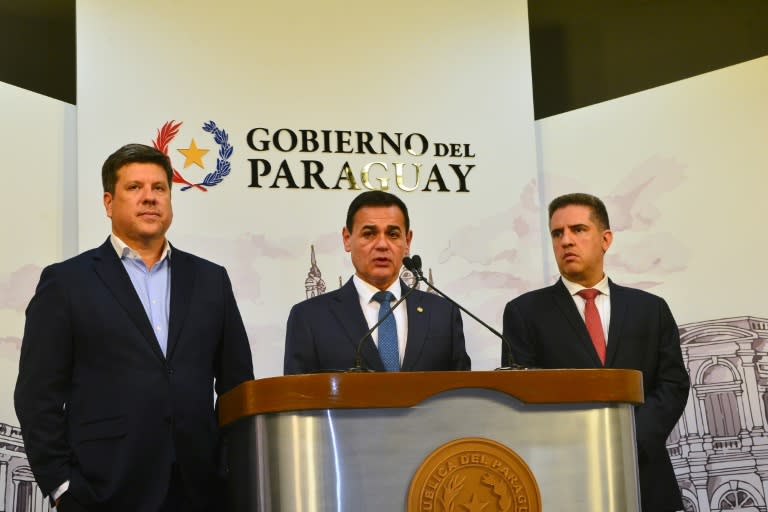
Paraguay summoned the Brazilian ambassador in Asunción on Tuesday to demand “explanations” and called its own representative in Brasília for consultations following Brazil’s acknowledgment of an espionage operation. The Brazilian government, led by President Luiz Inácio Lula da Silva, attributed the operation to the previous administration.
The surveillance effort aimed to uncover Paraguay’s position in now-suspended negotiations with Brazil regarding the pricing of electricity from the binational Itaipú hydroelectric plant, according to reports in the Brazilian press.
The Brazilian government “categorically denied any involvement in the intelligence operation,” stating in a Foreign Ministry communiqué on Monday that the espionage was carried out under former President Jair Bolsonaro’s administration (2019-2023).
“The operation was authorized by the previous government in June 2022 and was annulled by the interim director of the (state intelligence agency) ABIN on March 27, 2023, as soon as the current administration became aware of it,” Brazil’s government asserted.
Paraguay’s Foreign Minister Rubén Ramírez announced that Brazilian Ambassador José Antonio Marcondes de Carvalho was summoned “to provide detailed explanations” regarding the operation. Additionally, Paraguay recalled its diplomatic representative in Brasília “to report on aspects related to the intelligence activity conducted by Brazil regarding Paraguay’s government affairs.”
International
Elon Musk to step down as government advisor, per Trump insiders
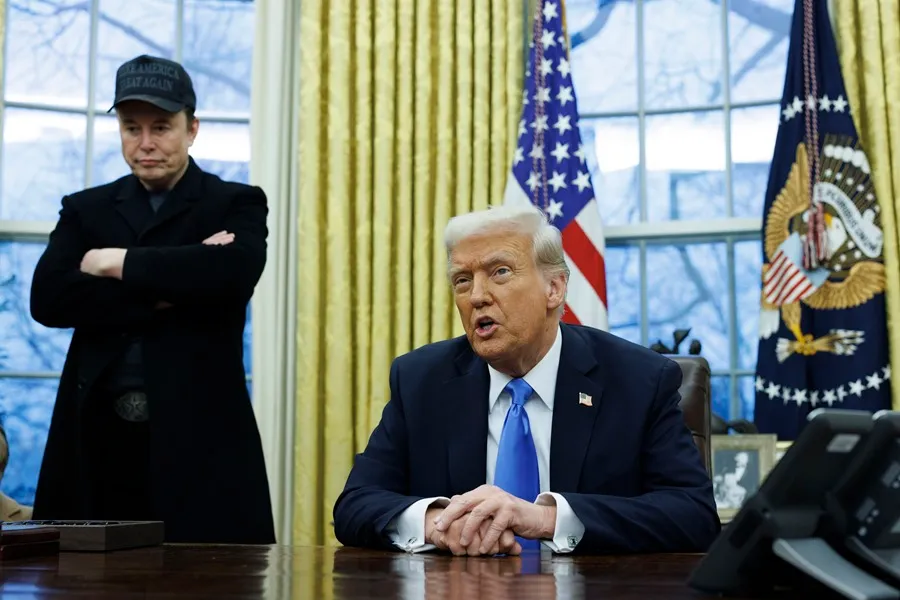
President Donald Trump has informed his inner circle that Elon Musk will be stepping down from his role as a government advisor, according to a report by Politico today.
Citing three individuals close to Trump, Politico states that the president is pleased with Musk’s leadership at the Department of Government Efficiency (DOGE), where he has implemented significant budget cuts. However, both have agreed that it is time for Musk to return to his businesses and support Trump from a different position outside the government.
A senior administration official told Politico that Musk will likely maintain an informal advisory role and continue to be an occasional visitor to the White House. Another source warned that anyone thinking Musk will completely disappear from Trump’s circle is “deluding themselves.”
According to the sources, this transition is expected to coincide with the end of Musk’s tenure as a “special government employee,” a temporary status that exempts him from certain ethics and conflict-of-interest regulations. This 130-day period is set to expire in late May or early June.
International
Milei vows to make Argentina so strong that Falkland Islanders “choose” to join

Argentine President Javier Milei reaffirmed his country’s claim over the Falkland Islands (known as the Islas Malvinas in Argentina) and praised the role of the nation’s armed forces during a ceremony marking the “Veterans and Fallen Soldiers of the Malvinas War Day,” commemorating 43 years since the 1982 conflict with the United Kingdom.
Argentina continues to assert sovereignty over the islands, arguing that Britain unlawfully seized them in 1833.
“If sovereignty over the Malvinas is the issue, we have always made it clear that the most important vote is the one cast with one’s feet. We hope that one day, the Malvinas residents will choose to vote with their feet and join us,” Milei stated.
“That is why we aim to become a global power—so much so that they would prefer to be Argentine, making deterrence or persuasion unnecessary. This is why we have embarked on a path of liberation, working to make Argentina the freest country in the world and once again the nation with the highest GDP per capita on the planet,” he added.
-

 International4 days ago
International4 days agoSon of journalist José Rubén Zamora condemns father’s return to prison as “illegal”
-

 International4 days ago
International4 days agoMiyazaki’s style goes viral with AI but at what cost?
-

 Central America3 days ago
Central America3 days agoPanama police clarifies that Interpol alert for Martinelli is still pending
-

 Central America2 days ago
Central America2 days agoU.S. Homeland Security Secretary urges Mexico to strengthen Guatemala border
-

 International2 days ago
International2 days agoTrump urges Putin to reach peace deal
-

 Central America2 days ago
Central America2 days agoPanama grants Martinelli 72-hour extension to travel to Nicaragua
-

 International3 days ago
International3 days agoDeportation flight lands in Venezuela; government denies criminal gang links
-

 International16 hours ago
International16 hours agoParaguay summons Brazilian ambassador over Itaipú espionage scandal
-

 Sports16 hours ago
Sports16 hours agoFilipe Luis debuts as coach in Copa Libertadores with Flamengo
-

 Central America13 hours ago
Central America13 hours agoGuatemalan police officer killed in mob riots over baby kidnapping
-

 International16 hours ago
International16 hours agoMilei vows to make Argentina so strong that Falkland Islanders “choose” to join
-

 International16 hours ago
International16 hours agoElon Musk to step down as government advisor, per Trump insiders
-

 Sports16 hours ago
Sports16 hours agoVenezuela investigates 18 baseball players seeking asylum in Spain
-

 International16 hours ago
International16 hours agoICE agent’s arrest of suspect sparks controversy in Boston
-

 International16 hours ago
International16 hours agoÓscar Arias: Trump’s trade policies are a step backward
















